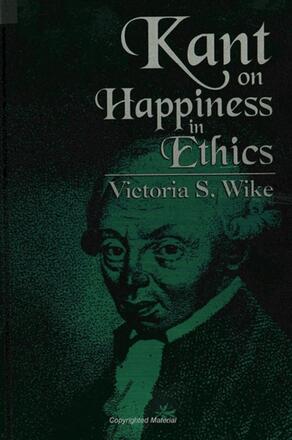
Kant on Happiness in Ethics
Alternative formats available from:
Description
This book provides a comprehensive analysis of Kant's treatment of happiness in ethics. It considers the definition of happiness and the possible roles happiness may serve in ethics. It argues against critics who maintain that Kant's deontological ethic rejects happiness and against critics who assert that Kant's ethic is, in fact, consequential and concerned above all with ends such as happiness. By pointing to a system that organizes Kant's various claims about happiness, the book supports the view that happiness has positive roles to play in Kant's ethic.
Victoria S. Wike is Associate Professor of Philosophy at Loyola University of Chicago.
Reviews
"People who work in Kant very often end up sounding like him, which is not good. While detailed and carefully argued, Wike's book is quite readable, written with economy and clarity. " — R. Z. Friedman, University of Toronto